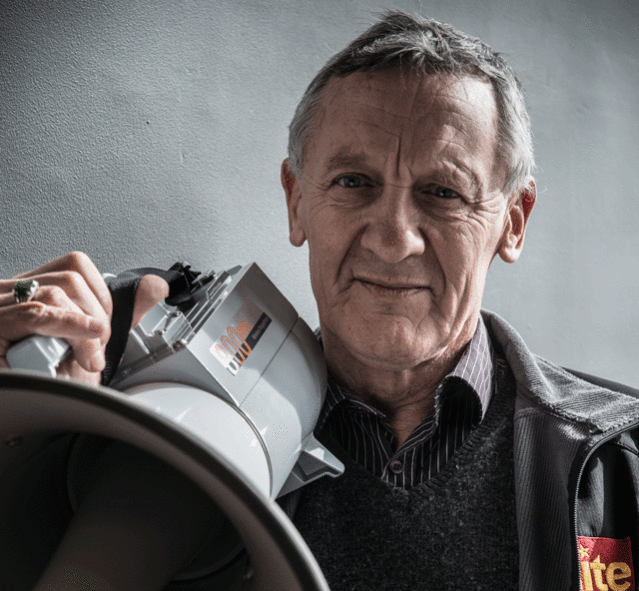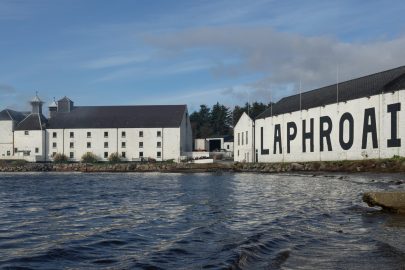Jul 16, 2015 People
Why is Stephen Tindall the most influential person in Auckland? He’s not the richest (that distinction goes to Graeme Hart, who is hardly influential at all — he seems to engage so little with the city he might as well be a rock on the moon). Tindall’s not close to the prime minister, either, and nor does he move in all the “right” circles. But as a venture capitalist, angel investor and straight-out benefactor, he’s put $250 million into start-ups. He’s said, currently, to have an interest in a hundred of them. He does it because he believes in opportunity and he encourages innovation.
His charity, the Tindall Foundation, has stumped up another $100 million for community initiatives. He’s active on environmental issues and an important supporter of the Stop Stealing Our Harbour campaign. Most importantly, Tindall’s at the top of this list because his judgment carries weight. If you’ve got Tindall backing your venture, other doors open. If you want to get something done in this city, he’s the guy you want in your corner.
Former Fletcher Challenge executive Geoff Whitcher is also a useful bloke to know. As founding director of the Centre for Innovation and Entrepreneurship at the University of Auckland’s Business School, Witcher is intimately engaged with the city’s entrepreneurial ecosystem — the beating heart of future business, including Spark, Chiasma, the Entrepreneurs’ Challenge and the Icehouse. A mentor to hundreds of students and staff, he’s the guy who’ll tell you who you have to see.
Crowdfunding? Actually, think “equity fundraising”: crowdfunding on steroids, which allows SMEs to offer an equity stake alongside the usual investor rewards. The two major local players are PledgeMe (recent equity campaigns include Yeastie Boys beer, Powerhouse wind turbines and ridesharing start-up Chariot) and Snowball Effect.
Founded by Fonterra colleagues Simeon Burnett, Francis Reid and Richard Allen, Snowball Effect has completed successful equity crowdfunding campaigns for companies including Renaissance Brewing and drone company Aeronavics. Earlier this year Invivo Wines raised $2 million through the platform, a New Zealand equity crowdfunding record.
Among the other make-it-happen individuals turning the entrepreneurial wheels of this town:
Mr Get-with-the-Programme is Derek Handley, the techy guy who helps companies understand their potential in the digital and intensely consumer-oriented world. The guy who does the most to keep the boat-building industry afloat is Peter Busfield, executive director of the Marine Industry Association. The guy in charge of the biggest Kiwi company you probably never heard of is Mike Ballantine: his Online Republic is a travel company expanding into other online services and heading for a billion dollar turnover in the next five years. The guy spearheading the sale of New Zealand real estate to Chinese buyers is Albany’s Sam Yin, at Hougarden.
Our first Gen Y billionaire is likely to be James Brown, aged 39, who makes his money in car parking and property development. He’s half of Tournament Parking. Our highest-profile business hero is Rob Fyfe, formerly of Air New Zealand, who has stepped up to take both Icebreaker and Craggy Range to the world. Our advertising and marketing elder statesman is Mike Hutcheson. He’ll open a lot of doors for you, if he likes you. The most-admired power business couple are Tenby Powell and Sharon Hunter. They’ll get you to the prime minister, if it’s the right thing to do.
Joan Withers is the most admired person in the boardrooms, especially after the successful divestment of shares in Mighty River Power, which she chairs. Jenny Shipley at Genesis did not manage nearly so well. Both Withers and Shipley are key proponents of the 25% Group, championing more women on boards.
Michael Stiassny is feared as often as he is admired, because in addition to his many board memberships he’s also the guy your creditors may call in if things go horribly wrong. Stiassny has an influential advisory role with the business arm of Ngati Whatua.
The go-to guy for private equity is Andrew Harmos at Harmos Horton Lusk: self-described “top end” corporate lawyers, they’re strong in mergers and acquisitions (recently helping Asahi acquire Charlies). Goldman Sachs is the lead investment bank and Andrew Barclay is their man in Auckland.
The NZ Super Fund CEO, Adrian Orr, manages a $37 billion asset with a glowing balance sheet, making money for New Zealanders that has nothing to do with the Auckland housing market.
Nigel Morrison at Sky City is our most powerful CEO. His company is expanding strongly, and it’s not just gambling but hotels and related activities that bring in the money. He’s got the government on a string with the proposed convention centre and he’s even overseen the transformation of our dining options.
Barbara Chapman runs the innovative ASB Bank: good results, strong community values, digital leadership and appeal to millennials all distinguish her contribution.
Britomart’s Peter Cooper, with his Auckland-based sidekick Matthew Cockram, has led the way in urban transformation, but his influence extends beyond that. Britomart is the rock on which Auckland’s new delight in itself is founded. It vibrantly mixes the old and new, proves the value of busy open spaces among the shops, helps connect us to the waterfront, and is a commercial part of town that’s genuinely fun to be in. After Britomart, Auckland realised the city was going to shine.
The development company of the moment is Manson TCLM; father Ted and sons Culum, Luke and Mac are using their own funding for a 43-storey tower on Albert St and another off Victoria St. There will be more. Scott Pritchard of Precinct Properties is also influential: his portfolio includes a 36-storey rebuild of the Downtown site and will create 20,000 new jobs in the central city by the early 2020s. (Continued, page 48)
Following the blighting of the city with ugly apartment blocks 10-20 years ago, there’s a new crop of developers, keen to create better inner-city living options. Mark Todd of Ockham Residential leads the way, while on the commercial front Target’s Steve Bielby is determined to re-establish the glory of the St James.
In retail, Andy Davies and Stephen Marr have led the regeneration of Ponsonby (Davies gave us Ponsonby Central).The quiet but formidable influence of Anne and David Norman has rescued Farmers, Whitcoulls and James Pascoe Group from oblivion. Steve Donohue is the new MD of Progressive Enterprises, which makes him the most powerful arbiter of what we buy in supermarkets. Rod Duke at Briscoes has proved the value of the revolving-sales model so conclusively it’s been picked up even by Country Road. And Workshop’s Chris Cherry continues to champion the “value” of cars in narrow shopping streets. He’s influential in the retail space way beyond reason.
The Top 5 Most Influential In Business
1. Stephen Tindall
2. Nigel Morrison
3. Peter Cooper & Matthew Cockram
4. Joan Withers
5. Michael Stiassny
6. Adrian Orr
7. Culum Manson
8. Barbara Chapman
9. Scott Pritchard
10. Derek Handley
Not so influential really
The big firms: Accountants, law firms, investment banks. One reason is that the law has changed. Big firms can’t charge the way they used to because commercial cases go to mediation and arbitration, rarely the courts, and tax law is now simpler, so there’s less work for lawyers. The other reason is that most of the big Shortland St firms are branch offices. Big decisions don’t get made here.
Theo Speirings, Fonterra CEO: Barely engaged with the city, despite Fonterra’s big presence here. David Hisco, ANZ CEO, NZ: The biggest bank is the slowest and besides, Mike Smith, the Australian CEO, pulls Hisco’s strings. Owen Glenn: He won’t be seen much more of if he can’t put his name on things, and no one is going to ask him to do that much anymore. The Committee for Auckland: They’re a lobby group with a smart-looking lineup who seem to have taken a vow of silence. Very strange.
Focus: Stephen Marr
By Frances Morton
If you’re more into beer than beauty, the first you might have heard of Stephen Marr is the recurring murmurings that Ponsonby’s much-loved Golden Dawn is a doomed pop-up. Any minute now building-owner Marr is going to close it down and develop the site, they say. Yet the Dawn, which opened in 2010, is still with us.
Marr says the rumours are kind of true. He does have plans, but they’ve been evolving.
He understands change: “Nothing’s going be the same in 10 years.” He’s enlisted Wellington architect Alistair Cox (Mighty Mighty, Melbourne’s The Town Mouse) and is concentrating on getting it right. “I think people will be pleasantly surprised,” he says.
Ponsonby is where Marr, the entrepreneur, began. It’s 21 years since he opened his first hair salon in the very building Golden Dawn now occupies. “It makes me feel a bit institutional,” says the 46-year-old with a laugh. “Chris [Priestley] had just opened up Atomic. SPQR was only a year old.”
The salon moved across the road four years later, and now he also has others in Newmarket and Takapuna. He still works on the floor in each of them one morning a week and is heavily involved in staff training: “Apart from the creative side I love the culture psych side of businesses. And I’m intrigued why places are the way they are, and why they feel the way they feel.” Marr trained as a hairdresser, but he also studied psychology at Waikato University.
It’s one thing to have been instrumental in creating the zeitgeist of early modern Ponsonby, and with it Auckland. But remarkably, Marr has been busy doing it all over again: he’s the guy behind several of those new shops on the Ponsonby strip; he partnered with Karen Walker and Dan Gosling on The Department Store; he started The Marr Factory, an annual all-access fashion event for designers who don’t take part in Fashion Week. “I get really juiced about concepts and start-ups,” he says.

Focus: Mike Treen
By Frances Morton
It’s a rainy day and Mike Treen has a fan heater on under his desk at Unite union’s modest offices in Morningside — because he got soaked on the bike ride from his home in Onehunga, and he’s drying out his pants.
“Biking is not a political statement,” he says. “It’s the personal choice of a 60-year-old man who wants to live longer and be a bit fitter.”
It might not be overtly political but it is motivated by a strong sense of doing what’s right — a drive that has propelled him throughout a lifetime of agitating for change, from anti-Vietnam War activist to Alliance Party political animal to union boss.
Ten years ago Treen set out to “organise the unorganised”, taking over Unite with co-leader Matt McCarten and building it from a group with about 100 members to 7000 workers from the most fractured industries — fast food, security, hotels and call centres.
When McCarten left to become the Labour Party’s chief of staff before last year’s election, some doubted Unite would survive. Treen has not only proved them wrong, he’s spearheaded the most successful campaign run by any New Zealand union in the modern age: the fight against zero hours.
After a very public battle, McDonalds, Burger King and Restaurant Brands have all committed to minimum hours in their contracts and other employers are expected to do the same.
Unite is one of the few unions still making noise. It’s a deliberate strategy. The bargaining power of high-turnover part-timer employees is weak — Unite has to recruit 4000 people a year just for membership numbers to stand still. The zero-hour campaign needed to hit the fast food outlets where it hurt — their brand perception — which meant playing the battle out in the media and getting the public onside.
“It was spectacular,” says Treen. “That was ten out of ten. The stars were aligned or something. We don’t normally expect such a groundswell of support and sympathy.” An influential unionist: a rare breed today.





